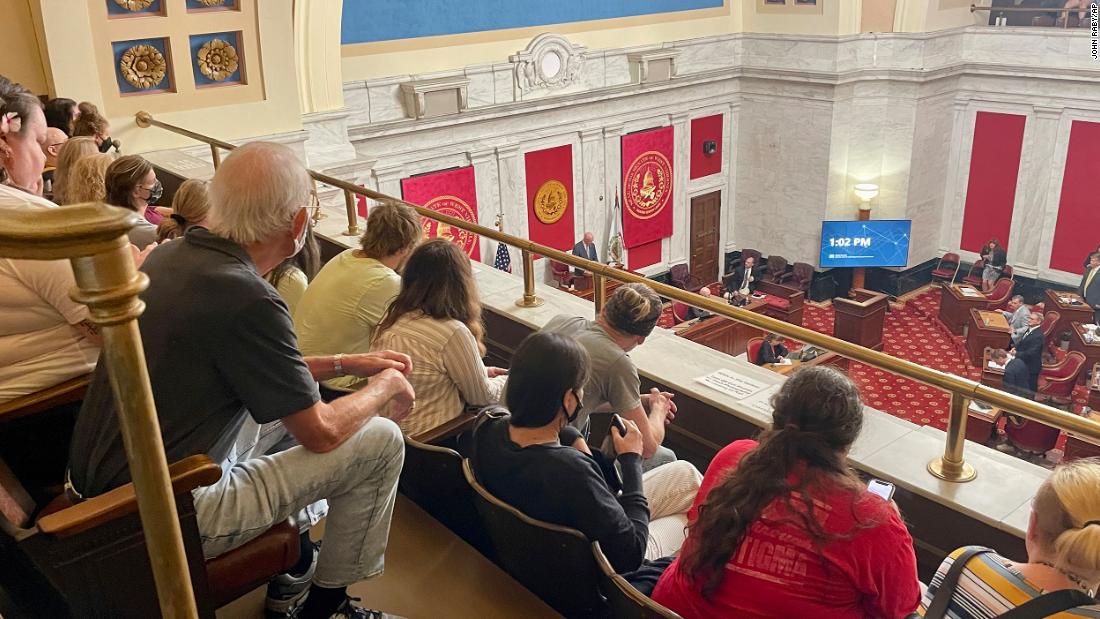

West Virginia is one of two states that have reconvened a special session to consider restrictions on abortion since the US Supreme Court overturned Roe v. Wade in late June, finding there was no longer a federal constitutional right to the procedure. HB 302, the West Virginia bill under debate, aims to significantly curtail access to abortion in the state, where it is currently legal up to 20 weeks post-fertilization.
HB 302 would prohibit abortion at any stage of pregnancy, with exceptions for a “nonmedically viable fetus,” a medical emergency or an ectopic pregnancy, a rare event in which the fertilized egg implants outside the uterus and cannot survive.
The House-passed HB 302 also sought to repeal a 19th century state law criminalizing abortion but reenact the law’s criminal penalties for medical professionals who violate the abortion ban. An abortion provider who violates the law would be subject to a felony and up to 10 years in prison, according to the bill.
The House and Senate must agree on the legislative text before it can be sent to Republican Gov. Jim Justice, who had called lawmakers back for the special session to “clarify and modernize” West Virginia’s abortion-related laws.
Under both versions of the bill, miscarriages, stillbirths, in vitro fertilization and medical treatment that results in accidental or unintentional death of a fetus, are not considered abortions. The legislation would not prevent the sale and use of contraceptives. And abortion providers would need to notify a minor’s parent before an abortion is performed.
It defines medical emergencies as a “condition that so complicates the medical condition of a patient as to necessitate an immediate abortion to avert the patient’s death or for which a delay will create serious risk of substantial and irreversible physical impairment of a major bodily function, not including psychological or emotional conditions.”
